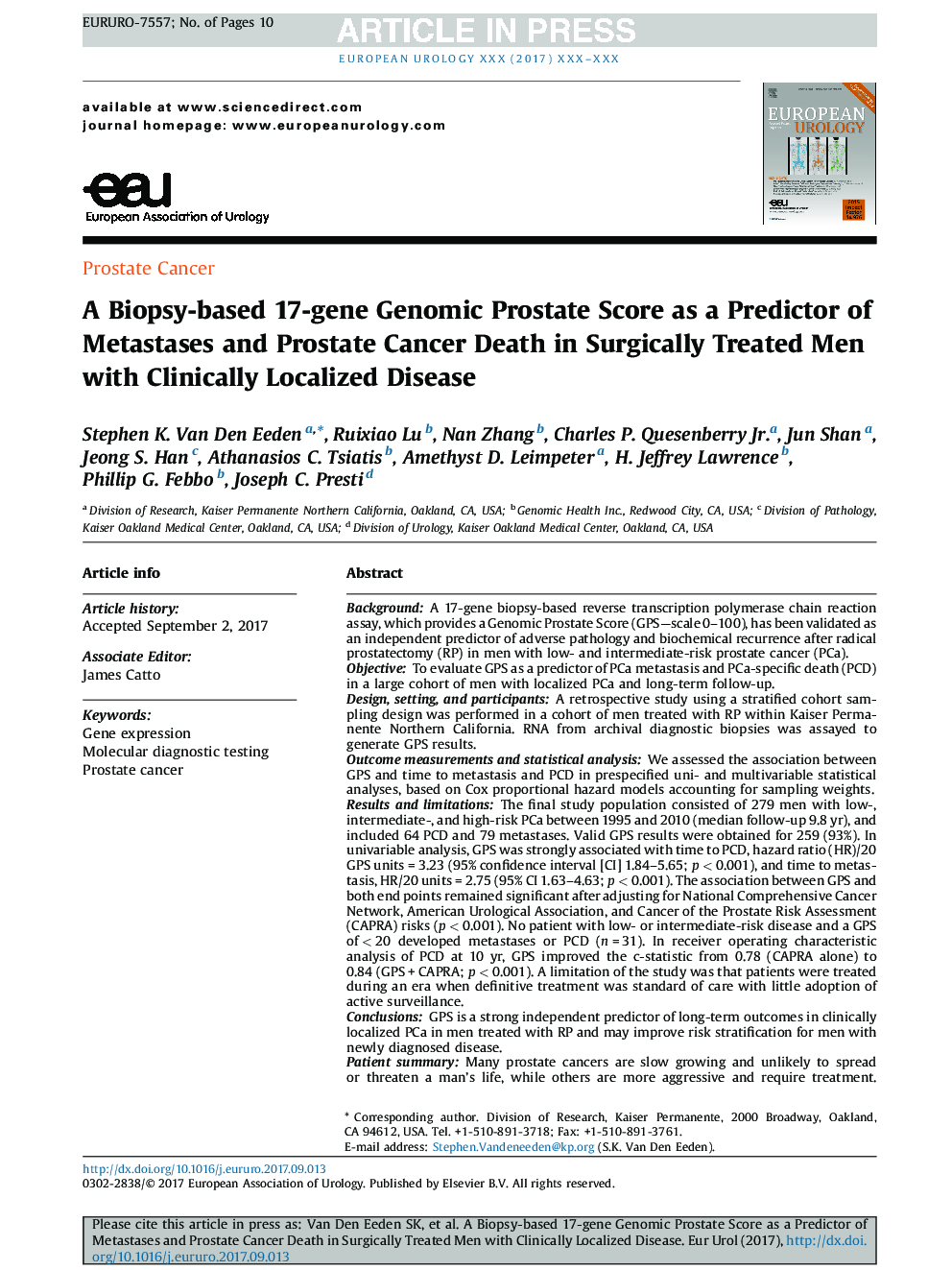| Article ID | Journal | Published Year | Pages | File Type |
|---|---|---|---|---|
| 8778631 | European Urology | 2018 | 10 Pages |
Abstract
Many prostate cancers are slow growing and unlikely to spread or threaten a man's life, while others are more aggressive and require treatment. Increasingly, doctors are using new molecular tests, such as the17-gene Genomic Prostate Score (GPS), which can be performed at the time of initial diagnosis to help determine how aggressive a given patient's cancer may be. In this study, performed in a large community-based healthcare network, GPS was shown to be a strong predictor as to whether a man's prostate cancer will spread and threaten his life after surgery, providing information that may help patients and their doctors decide on the best course of management of their disease.
Related Topics
Health Sciences
Medicine and Dentistry
Obstetrics, Gynecology and Women's Health
Authors
Stephen K. Van Den Eeden, Ruixiao Lu, Nan Zhang, Charles P. Jr., Jun Shan, Jeong S. Han, Athanasios C. Tsiatis, Amethyst D. Leimpeter, H. Jeffrey Lawrence, Phillip G. Febbo, Joseph C. Presti,
